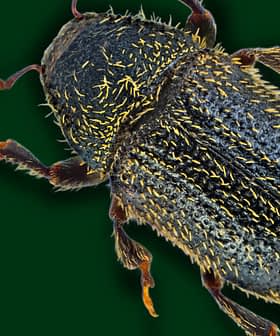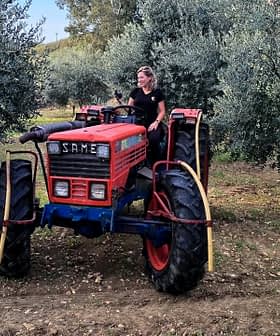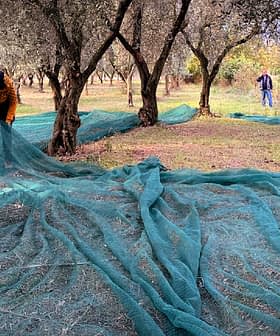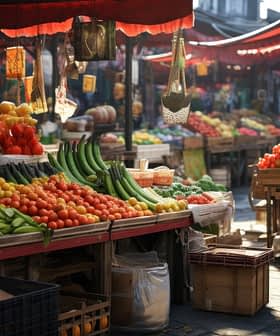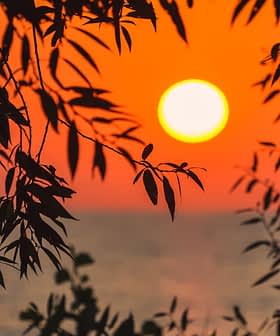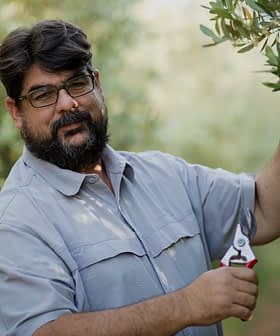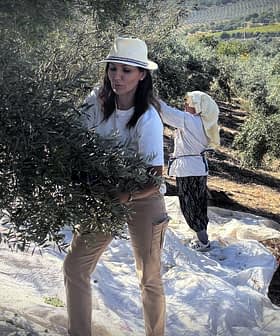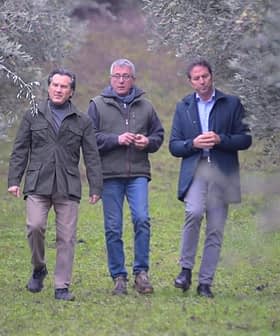Environmentally Friendly Bioplastics Created From Olive Seeds
The idea to create olive-based plastics was sparked when Duygu Yilmaz decided to research whether her father's habit of eating olive seeds was detrimental to his health.
 Photo courtesy of Biolive
Photo courtesy of BioliveYoung entrepreneurs in Istanbul have developed a method to create bioplastics from olive seeds, aiming to provide a sustainable alternative to petroleum-based plastics in the industry. The company, Biolive, has won awards for their innovative approach and plans to establish a production plant to meet the demands of various industries for their biodegradable plastic products.
Young entrepreneurs in Istanbul have come up with a way to turn olive seeds into environmentally friendly bioplastics.
Their mission is to fill a gap in the bioplastics industry by recycling waste products from olive oil production into a green alternative to petroleum derived plastics.
The plastic granules we produce can be used in industry, in packaging (and) in toys.
The idea was sparked when co-founder and CFO, Duygu Yilmaz, became concerned about her father’s habit of eating olive seeds. She decided to carry out some research to determine if the olive pips were detrimental to his health.
During her research Yilmaz discovered similarities in the chemical make up of olive stones and plastics. This discovery led her to team up with two other young Turks, Ahmet Fatih Ayas and Mehmet Emin Öz and launch Biolive in 2016.
See Also:Olive Oil and the EnvironmentBiolive began transforming the cellulosic agent sourced from olive pits, which are discarded during the olive oil production process, into biodegradable plastic products. These leave a much smaller carbon footprint and offer a sustainable substitute for plastic packaging.
“The plastic granules we produce can be used in industry, in packaging [and] in toys,” Yilmaz told Energy News Live. “We will establish a production plant and sell to industry regarding to industry demands.”
The trio claim they can transform five tons of olive seeds into 3.5 tons of bioplastic which decomposes within one year and is absorbed into the earth as fertilizer. This would be a stark contrast to the environmentally damaging, oil-derived plastics that produce high levels of carbon emissions and take around 450 years to decompose.
In 2018, Biolive won the advanced materials category for waste beneficiation in the Cleantech National Accelerator Global Ideas Competition. This followed funding by Vestel Ventures in 2017, which enabled Biolive to begin designing, developing and producing bio-based plastics and granules.
Yilmaz who is passionate about inspiring other young women in Turkey and creating jobs has been recognized for her olive pip innovation and in 2017 was named as Turkey’s “Promising Woman Entrepreneur.”
Turkey has been slow to address the damage caused by discarded plastics and was ranked poorly for environmental performance by Yale Center for Environmental Law and Policy.
Around 30 to 35 billion plastic bags were used annually and only this year, Turkish supermarkets have been banned from giving out plastic bags. The average Turkish consumer was using around 440 per year compared to the 15 to 25 averaged by European consumers.
This is not the first time olive seeds have ousted petroleum derived plastics. Back In 2017 a British company developed micro-beads from olive pomace and went on to create an environmentally friendly hand wash made from ground olive kernels instead of ocean-destroying plastic micro-beads.
“We manufacture olive-based micro-beads to order, primarily for the cosmetics industry, and we have an agreement with a Norwegian partner to take these into the cosmetics market,” co-founder Steve Taylor told Olive Oil Times, “We have seen increased interest as the removal of plastic-based beads gathers pace.”


